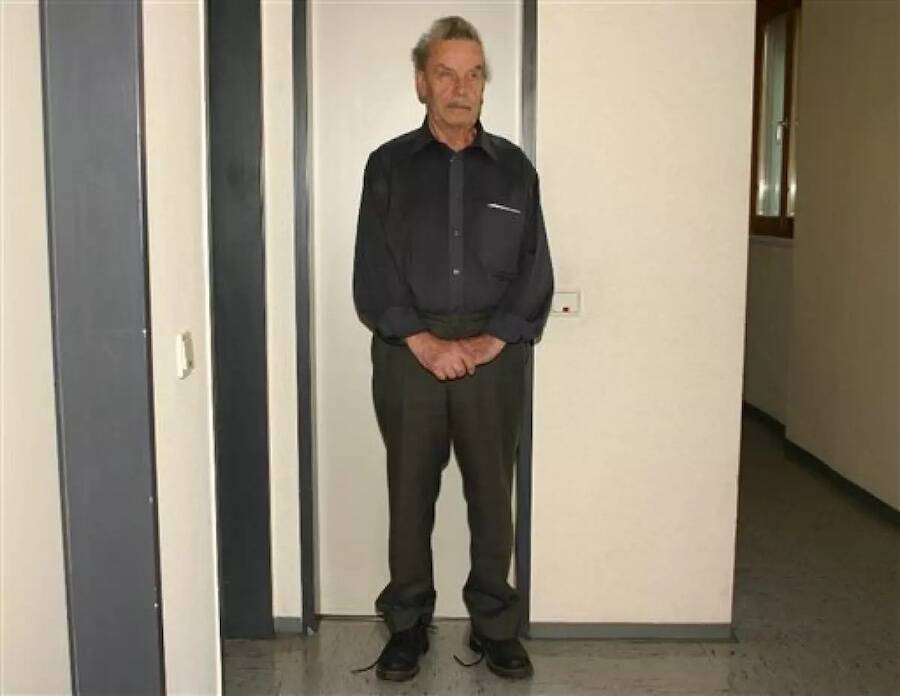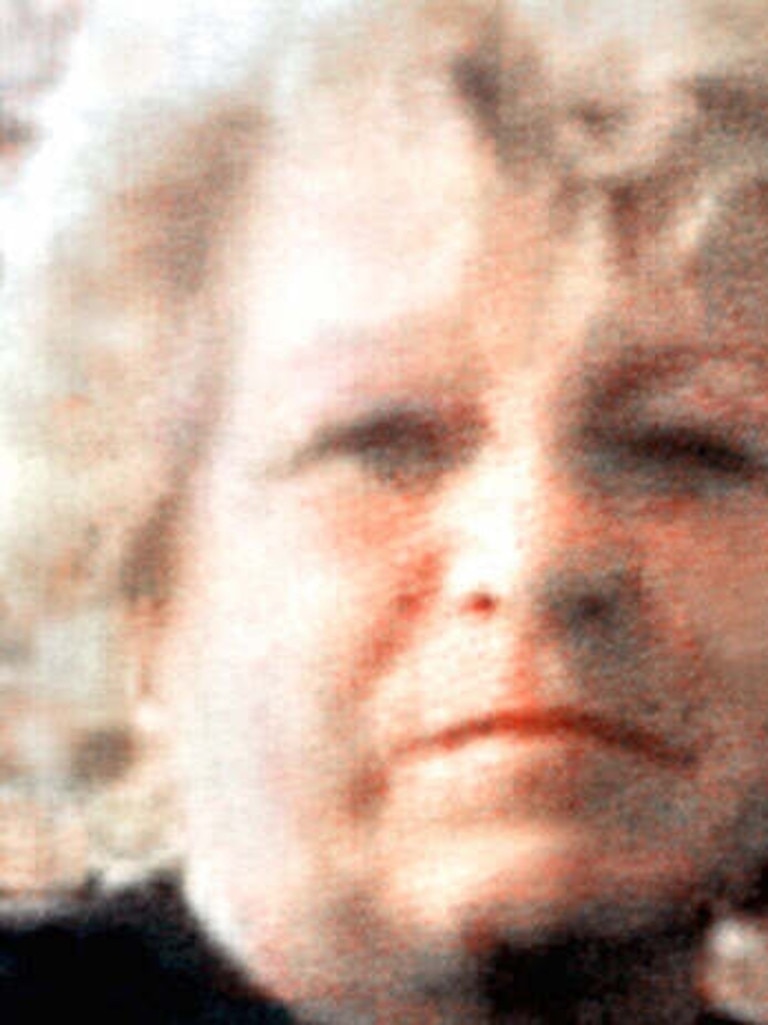Let me start by saying this ain’t gonna be an easy read, folks. Josef Fritzl’s story is one of those jaw-droppers that makes you question humanity itself. His name became synonymous with horror after a shocking revelation in 2008. This isn’t just about a guy who made headlines—it’s about the chilling reality behind closed doors. So buckle up, because we’re diving deep into the life, crimes, and consequences of Josef Fritzl.
Now, you might be wondering why we’re even talking about this guy. Well, let me tell ya, it’s not just another crime story. It’s a tale of darkness, resilience, and the power of truth. Josef Fritzl isn’t just some random dude; he’s a name that will forever remind us of the importance of justice and the strength of those who survive unimaginable circumstances.
Before we dive headfirst into the details, let’s set the stage. This ain’t gonna be pretty, but it’s necessary. Understanding who Josef Fritzl really is—and what he did—can help us learn from the past and prevent similar horrors in the future. So grab your coffee, sit tight, and let’s uncover the truth together.
Read also:Who Is Cheryl Hines Married To Unveiling The Life And Love Story Of Cheryl Hines
Biography of Josef Fritzl
Early Life and Background
Let’s rewind the clock to Austria, where Josef Fritzl was born on September 12, 1935. Growing up in a small town, nobody would’ve guessed the monster lurking beneath his seemingly ordinary exterior. Fritzl lived a life that, from the outside, looked normal. He married, had kids, and held down jobs. But beneath the surface? That’s where things got twisted.
Here’s a quick glance at his early life:
- Born in Wels, Austria
- Served in the Austrian army
- Worked as an engineer and later became a utility worker
But there’s more to this story than meets the eye. Let’s break it down further.
Personal Information
| Full Name | Josef Fritzl |
|---|---|
| Date of Birth | September 12, 1935 |
| Place of Birth | Wels, Austria |
| Profession | Engineer, Utility Worker |
| Marital Status | Married to Rosalia |
See? On paper, he seemed like any other guy. But as we’ll soon discover, appearances can be deceiving.
The Shocking Truth: Josef Fritzl's Crimes
Imprisonment of Elisabeth Fritzl
Here’s where the story takes a dark turn. In 1984, Fritzl committed one of the most heinous acts in modern history. He imprisoned his own daughter, Elisabeth, in a basement for 24 years. That’s right—24 years! Can you even imagine? She was only 18 when this nightmare began.
During her captivity, Elisabeth endured unimaginable horrors. Fritzl raped her repeatedly, resulting in the birth of seven children. Three of them survived, living in the same basement with their mother. The world had no idea what was happening beneath that innocent-looking house in Amstetten, Austria.
Read also:Eugene Or Obituaries Celebrating Lives And Remembering The Departed
Discovery and Exposure
The truth came to light in April 2008 when one of Elisabeth’s daughters fell ill. Fritzl, pretending to be a concerned grandfather, called emergency services. That’s when the authorities discovered the underground dungeon and the shocking truth about what had been happening there for over two decades.
When the news broke, the world was in disbelief. How could someone do such a thing? How could it go unnoticed for so long? These questions shook the foundations of trust and safety in communities worldwide.
Psychological Profile of Josef Fritzl
What Drives a Man to Such Evil?
Psychologists and criminologists have tried to understand what drives someone to commit such atrocities. Was Fritzl a product of his environment, or was there something inherently wrong with him from the start? Let’s explore some theories:
- Personality Disorders: Some suggest Fritzl exhibited traits of narcissistic personality disorder, where he saw himself as superior and entitled to control others.
- Psychopathy: Others argue that his lack of empathy and remorse aligns with characteristics of a psychopath.
- Abuse Cycle: There’s also speculation that Fritzl may have experienced abuse himself, creating a cycle that perpetuated his actions.
Regardless of the reason, one thing is clear: Fritzl’s actions were deliberate and calculated. He built the basement specifically to imprison Elisabeth, showing premeditation and intent.
The Aftermath: Justice and Recovery
Fritzl's Trial and Sentencing
Once the truth was out, Fritzl faced the legal system. In 2009, he was sentenced to life in prison without the possibility of parole. The court also ordered his confinement in a psychiatric ward, acknowledging the severity of his mental state and the danger he posed to society.
But justice for Elisabeth and her children didn’t stop there. They received compensation from the Austrian government and were provided with support services to help them rebuild their lives. It’s a long road, but they’ve shown incredible strength and resilience.
Impact on Society
Fritzl’s case sent shockwaves through Austria and beyond. It sparked debates about privacy, parental rights, and the need for stricter laws to protect vulnerable individuals. Many countries reevaluated their systems to ensure such horrors couldn’t happen again.
It also highlighted the importance of speaking up. If someone had noticed the red flags earlier—like the absence of Elisabeth for over two decades—this tragedy might’ve been prevented.
Lessons Learned from Josef Fritzl's Story
Preventing Future Atrocities
So, what can we learn from all of this? First and foremost, awareness is key. We need to be vigilant and report suspicious behavior. Trust your gut—if something seems off, it probably is.
Secondly, we must prioritize the protection of our most vulnerable populations. This means stronger laws, better enforcement, and more resources for victims and survivors.
Lastly, we need to have tough conversations about the darker aspects of human nature. Ignoring the problem won’t make it go away. By discussing these issues openly, we can work toward a safer, more compassionate world.
Public Reaction and Media Coverage
A Global Outcry
The media coverage surrounding Fritzl’s case was massive. Headlines around the world screamed with disbelief and outrage. People couldn’t wrap their heads around how someone could commit such atrocities and get away with it for so long.
But the media also played a role in bringing awareness to the issue. By shining a light on Fritzl’s crimes, they helped spark conversations about abuse, trauma, and justice. It was a wake-up call for many.
Elisabeth Fritzl: A Story of Survival
Strength in Adversity
While much of the focus has been on Josef Fritzl, we mustn’t forget the true hero of this story—Elisabeth. Despite everything she endured, she survived. She raised her children in unimaginable conditions and kept hope alive.
Today, Elisabeth lives under a new identity, protected by authorities. Her bravery and resilience continue to inspire countless others who’ve faced similar challenges. She’s a testament to the power of the human spirit.
Conclusion: Looking Forward
So, there you have it—the chilling tale of Josef Fritzl. It’s a story that reminds us of the importance of vigilance, justice, and compassion. While the details are harrowing, they also highlight the strength of survivors and the resilience of the human spirit.
What can you do? Start by staying informed. Speak up if you notice something suspicious. Support organizations working to protect vulnerable populations. Together, we can create a world where such horrors never happen again.
And don’t forget to share this article. The more people know, the better equipped we all are to prevent future tragedies. Let’s keep the conversation going.
Table of Contents
- Biography of Josef Fritzl
- The Shocking Truth: Josef Fritzl's Crimes
- Psychological Profile of Josef Fritzl
- The Aftermath: Justice and Recovery
- Lessons Learned from Josef Fritzl's Story
- Public Reaction and Media Coverage
- Elisabeth Fritzl: A Story of Survival
- Conclusion: Looking Forward


